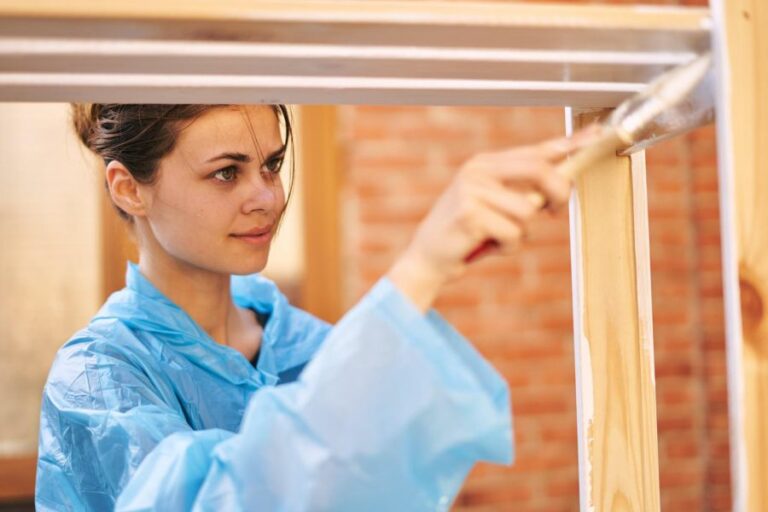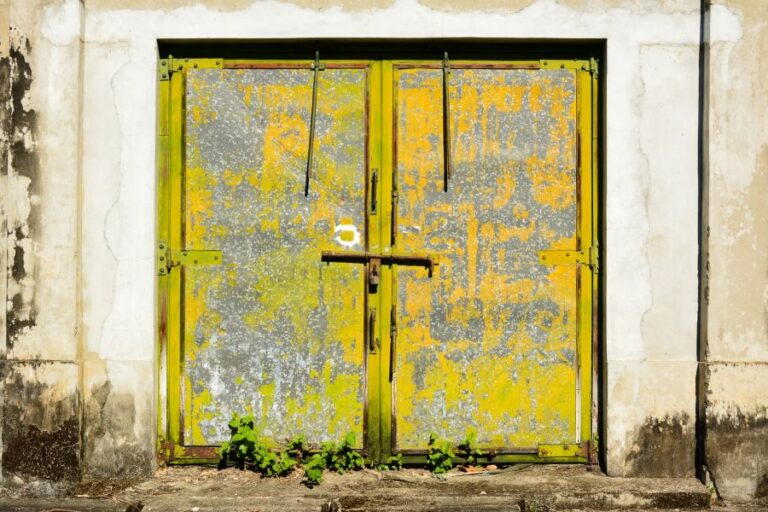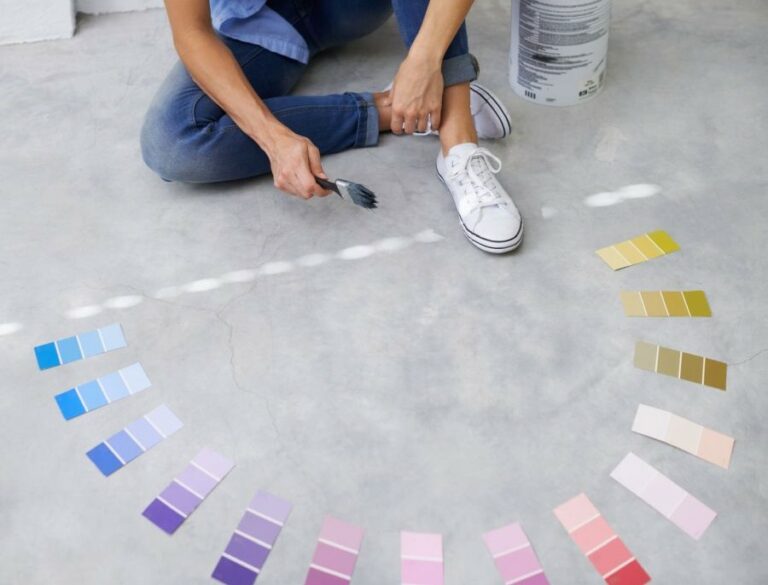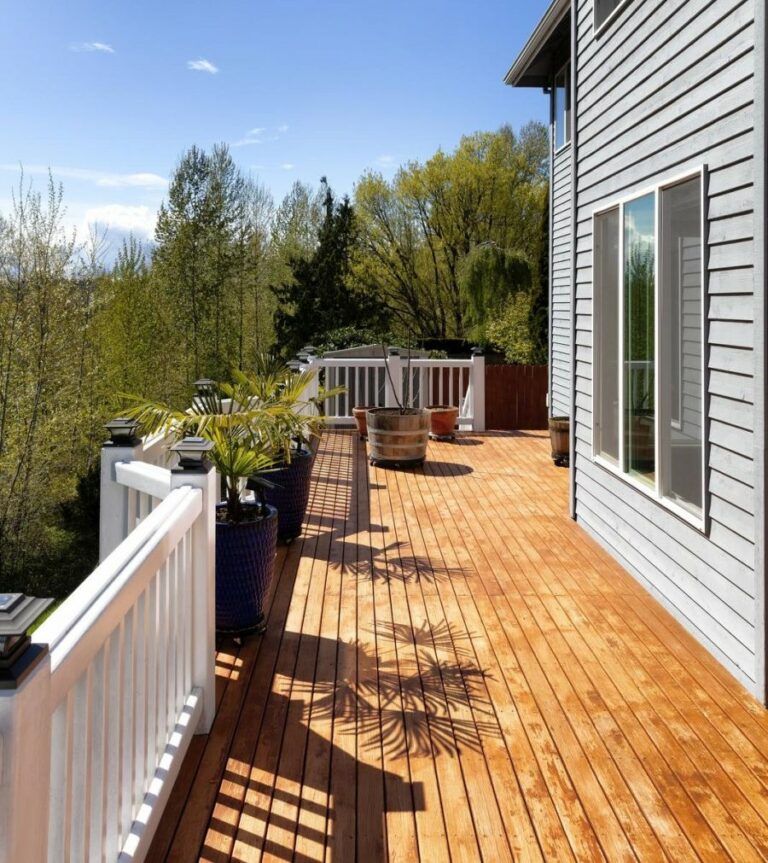Outdoor Craft Paint, 25 Things You Should Know
Unleash your inner artist and transform your outdoor space with the ultimate guide to outdoor craft paint! Discover how weather-resistant paints can bring life to dull patios, flower pots, or exterior walls. I will help you navigate the endless options, teach you how to prep surfaces to ensure optimal results, and share expert tips for application and maintenance.
Outdoor craft paint:
Outdoor craft paint is a versatile way to enhance and transform various surfaces, making them functional and visually appealing. I will discuss the types of outdoor craft paint, including acrylic, oil-based, and chalk paint, suitable surfaces like wood, metal, and plastic; and application techniques such as brushes, rollers, and spray paint. Expert tips include surface preparation, priming, applying multiple thin layers, sealing projects, and being patient to achieve impressive and lasting results.

Discover the world of outdoor craft paint as we explore various types, applications, and tips to perfect your next al fresco project. Unleash your creativity and transform your outdoor space with durable, weather-resistant paint that lasts.
Contents
- 1 Exterior Artisan Paint
- 2 Determining the Ideal Paint for Outdoor Craft Projects
- 3 What is the Most Suitable Paint Choice for Outdoor Wood Craft Projects?
- 4 Is Acrylic Paint Suitable for Outdoor Craft Projects?
- 5 Is Decoart Crafters Acrylic Paint Suitable for Outdoor Use?
Exterior Artisan Paint
Outdoor craft paint is a versatile way to enhance and transform various surfaces, making them both functional and visually appealing. If you’re looking to bring creativity to your outdoor living space, you’re in the right place.
• Types of Outdoor Craft Paint
1. Acrylic Paint
Acrylic paint is a water-based paint that is fast-drying and offers high coverage. It is suitable for a variety of surfaces, including wood, metal, and plastic. Acrylic paint is durable and weather-resistant, making it ideal for outdoor use.
Recommended brands:
- FolkArt Outdoor Acrylic Paint
- DecoArt Patio Paint Outdoor
- Liquitex Professional Heavy Body Acrylic Paint
2. Oil-Based Paint
Oil-based paint is a slow-drying paint that offers high durability and weather resistance. It can be used on various surfaces, including wood, metal, and plastic. Oil-based paint is excellent for outdoor use, as it provides a long-lasting, protective finish.
Recommended brands:
- Rust-Oleum Protective Enamel Paint
- Krylon Fusion All-in-One Spray Paint
- GOLDEN Heavy Body Artist Oil Colors
3. Chalk Paint
Chalk paint is a water-based paint that dries to a chalky, matte finish. It is suitable for a variety of surfaces, including wood, metal, and plastic. Chalk paint offers a unique, distressed look that is perfect for upcycling outdoor furniture and garden ornaments.
Recommended brands:
- Rust-Oleum Chalked Paint
- Annie Sloan Chalk Paint
- DecoArt Americana Decor Chalky Finish Paint
• Choosing the Right Paint for Your Surface
Different types of outdoor craft paint are suited for specific surfaces. Here’s a breakdown of the best paint options based on surface type:
– Wood
For wooden surfaces, acrylic and oil-based paints are the most popular choices. They offer excellent durability and weather resistance. Chalk paint can also be used for a more rustic, distressed look.
– Metal
Both acrylic and oil-based paints are suitable for metal surfaces. However, oil-based paints generally offer better rust protection and durability for outdoor use.
– Plastic
Acrylic paint is the most commonly used paint for plastic surfaces due to its flexibility and excellent adherence. Oil-based paints can also be used, but it’s essential to ensure that the paint is compatible with the plastic material to avoid peeling or cracking.
• Application Techniques for Outdoor Craft Paint
– Brushes
Using brushes provides better control over the paint application, making it an excellent option for painting detailed or intricate designs. When choosing brushes, make sure to select ones with synthetic bristles for the best results.
– Rollers
Rollers provide an even and smooth finish on larger surface areas. Choose a high-quality roller that has a 3/8-inch nap for optimal paint application.
– Spray Paint
Spray paint is convenient for quick and even coverage, particularly on intricate or hard-to-reach areas. Ensure you use the proper technique by holding the can approximately 8-12 inches away from the surface and using a continuous, side-to-side motion to avoid drips and sagging.
• Expert Tips for Successful Outdoor Craft Painting
- Preparation is key. Thoroughly clean and prepare the surface before painting to ensure proper paint adhesion. Sand rough surfaces if necessary and remove any dust or debris.
- Prime the surface. Use a primer suited for your chosen paint type and surface material to create a smooth and even base layer for the paint. Priming helps improve paint adherence and enhances the durability of the final paint finish.
- Apply multiple thin layers. For a smooth, even finish, apply multiple thin layers of paint, allowing each layer to dry before applying the next. This approach will help prevent streaks, drips, and uneven paint surfaces.
- Seal your project. Apply a clear sealer or finish to protect your painted surface from the elements further and extend its lifespan. Choose a sealer compatible with your paint type, and ensure it’s specifically formulated for outdoor use.
- Be patient. Allow your project to dry completely before exposing it to or handling the elements. Follow the manufacturer’s instructions for drying times.
In conclusion, outdoor craft paint allows you to add creativity and personalization to your outdoor living space. Even novice painters can achieve impressive and lasting results by understanding the types of paint, suitable surfaces, application techniques, and expert tips.
With the right tools, materials, and patience, your next outdoor craft paint project will surely be a success.
Determining the Ideal Paint for Outdoor Craft Projects
If you’re an artist, DIY enthusiast, or simply someone who enjoys creating beautiful, weather-resistant outdoor crafts, you’re already aware that choosing the right paint is crucial.
Picking the perfect paint type ensures your creations look stunning and can withstand exposure to the elements over time.
• Acrylic Paints: A Popular Choice for Artists
One of the most popular choices for outdoor craft projects is acrylic paint. Acrylic paints are water-based, non-toxic, and dry quickly. They form a durable and waterproof surface when dry, making them an excellent choice for outdoor use.
Pros:
- Wide Range of Colors: Acrylic paints come in a vast assortment of colors that can meet any artist’s needs for a variety of projects.
- Affordable: These paints are budget-friendly and suitable for beginner and experienced artists alike.
- Easy to Clean: Acrylic paint is water-soluble, making it relatively easy to clean from brushes and surfaces before fully drying.
- Quick Drying Time: Typically, acrylics dry quickly, sometimes within minutes, which is beneficial for artists who like to work fast or need their projects to set up rapidly.
- Versatile: Acrylics can be used on various surfaces, including wood, metal, glass, and plastic, allowing for endless possibilities.
Cons:
- Less Weather-resistant: While acrylic paints are suitable for outdoor use, they may not be as long-lasting and weather-resistant as other choices, like enamel or oil-based paints.
- Susceptibility to Fading: Some lower-quality acrylic paints may gradually fade over time due to UV exposure.
– Recommendations
To enhance the longevity and appearance of your outdoor crafts, I recommend the following products:
- Outdoor Acrylic Paints: Specific acrylic paints are designed explicitly for outdoor use, such as DecoArt’s Patio Paint Outdoor or FolkArt’s Outdoor Acrylic Paints. These paints have improved weather resistance and UV protection, making them ideal for outdoor crafts.
- Sealant: It’s always a good idea to apply an exterior sealant, like a clear varnish or a polycrylic sealer, over your outdoor projects once they’ve dried. This extra layer provides additional protection against the effects of weather and sunlight.
• Enamel Paints: A Classic Choice for Durability
Enamel paints are oil-based and offer excellent durability and a glossy finish. They’re perfect for those looking for high-quality, long-lasting paint for outdoor crafts, particularly on metal surfaces.
Pros:
- Long-lasting: Enamel paints are resistant to wear and tear, making them a popular choice for outdoor projects where the craft may experience constant exposure to the elements.
- Glossy Finish: Enamel paints provide a shiny and hard finish, adding extra visual appeal to your outdoor crafts.
- Weather-resistant: These paints are less prone to fading and damage caused by UV rays, rain, and temperature fluctuations.
Cons:
- Slow Drying Time: Enamel paints tend to dry slowly, which may require greater patience when working on a project.
- Difficulty to Clean: Since they are oil-based, enamel paints can be more challenging to clean off brushes and surfaces.
– Recommendations
Some enamel paints that I highly recommend for outdoor crafts are:
- Rust-Oleum Painter’s Touch: This multi-purpose enamel paint is excellent for various surfaces and provides a durable, protective, and smooth finish.
- Testors Enamel Paints: These small bottles of enamel paint are perfect for detail work on outdoor crafts, and they come in a wide range of colors.
• Spray Paints: A Convenient and Professional-Looking Finish
Spray paint is another popular choice for outdoor craft projects due to its convenience, ease of application, and professional-looking finish.
Pros:
- Uniform Finish: Spray paint provides a consistent and smooth finish, which is great, especially for larger projects.
- Quick Drying Time: It dries relatively quickly, so you can quickly finish your outdoor crafts.
- Wide Surface Compatibility: Spray paint can be easily used on a variety of surfaces, such as wood, metal, glass, and plastic.
Cons:
- Limited Blending: It can be difficult to blend colors using spray paint.
- Ventilation Concerns: Spraying paint requires proper ventilation to reduce the risk of inhaling potentially harmful fumes.
– Recommendations
When selecting spray paint for your outdoor crafts, look for products specifically labeled for outdoor use, as these will offer better weather resistance and durability. Some examples include:
- Krylon Outdoor Decor Spray Paint: This paint is designed for outdoor use, provides weather resistance, easy application, and comes in various colors.
- Rust-Oleum Stops Rust Spray Paint: This option works well on surfaces prone to rust, also providing a weather-resistant finish.
• Final Thoughts
Ultimately, the best paint for outdoor crafts depends on your specific needs, the surface you’re working on, and your desired finish. Acrylic paint offers flexibility and affordability, enamel paint provides durability and a glossy finish, and spray paint ensures convenience and a professional-looking result.
Whatever paint type you choose, don’t forget to add a sealant for extra protection against the elements, and most importantly, unleash your creativity and enjoy the process.
Paint Type | Features | Best For |
|---|---|---|
Acrylic Paint | Water-based, fast-drying, durable, and resistant to UV light and weather | Wood, concrete, terra cotta, metal, and plastic |
Exterior House Paint | Long-lasting, designed for outdoor use, weather-resistant, and UV-protected | Large-scale projects, murals, and outdoor walls |
Outdoor Spray Paint | Quick-drying, easy application, weather-resistant, and fade-resistant | Wood, metal, plastic, glass, and ceramics |
Oil Paint | Rich colors, slow-drying, and water-resistant | Canvas, wood, and metal (with proper surface preparation) |
What is the Most Suitable Paint Choice for Outdoor Wood Craft Projects?
Achieving a beautiful and long-lasting finish for your outdoor wood crafts requires selecting the right type of paint. There are numerous options available, and choosing the best paint for your project can be a daunting task.
• Acrylic Latex Paint
Acrylic latex paint is popular for outdoor wood crafts due to its various benefits. It is durable and resistant to peeling, cracking, and fading and dries quickly and adheres well to various surfaces. It offers excellent color retention and is available in a wide array of colors and finishes.
Pros:
- Highly durable and resistant to harsh weather conditions
- Fast-drying and easy to apply
- Excellent adhesion to different surfaces, including wood
- Wide variety of colors and finishes available
Cons:
- May require a primer for better adhesion
- Needs proper surface preparation to achieve a smooth finish
• Oil-Based Paint
Oil-based paint is another popular choice for outdoor wood crafts. Its long-lasting durability and superior resistance to water make it a suitable option for areas exposed to moisture. Oil-based paint dries slowly but provides a high-gloss finish that adds an attractive sheen to your projects.
Pros:
- Exceptional durability, especially in areas prone to moisture
- High-gloss finish for a professional appearance
- Superior coverage with fewer coats
Cons:
- Longer drying time than acrylic latex paint
- Strong odor and requires mineral spirits for cleanup
- May discolor over time in direct sunlight
• Exterior Polyurethane
Exterior polyurethane works well as a sealing and protective coat for outdoor wood crafts. It’s available in water- and oil-based options, providing a clear or tinted finish.
Exterior polyurethane offers UV resistance, preventing damage from sunlight and adding an additional layer of protection to the underlying paint.
Pros:
- provides UV resistance and additional protection
- Available in clear or tinted finishes
- Can be used over other paint types
Cons:
- Not suitable as a standalone paint
- May require multiple coats for a smooth finish
- Can become cloudy or yellow over time if not properly applied
• Milk Paint
Milk paint is a natural and eco-friendly option for outdoor wood crafts. Made with ingredients like milk protein and limestone, it’s a great choice for anyone looking for paint with a low environmental impact. Milk paint provides a unique surface texture but requires a topcoat to ensure durability.
Pros:
- Eco-friendly and non-toxic
- Unique, rustic appearance
- Can be mixed as a powder, allowing for custom colors
Cons:
- Requires a topcoat for durability
- Limited color options compared to other paint types
- Can be more challenging to mix and apply
• Tips for Painting Outdoor Wood Crafts
Now that you know the best paint options for outdoor wood crafts, here are some tips to ensure a successful painting project.
– Proper Surface Preparation
Preparing the wood surface is essential for achieving a smooth, long-lasting finish. Start by cleaning the surface with mild detergent and water to remove dirt and debris. Once the surface is clean, it needs to be sanded to create a smooth texture for the paint to adhere to.
– Use Primer
To achieve better adhesion and coverage, it’s a good idea to use a primer before applying the paint. A primer layer can help ensure an even and consistent finish while reducing the number of coats needed.
– Follow the Manufacturer’s Instructions
It’s essential to read and follow the manufacturer’s instructions for application, drying time, and cleanup. These instructions can vary depending on the type of paint you select and can impact your project’s final appearance and durability.
– Choose Quality Brushes and Tools
Investing in quality brushes and tools is crucial for a professional finish. High-quality brushes can help create smooth, even coats and are less likely to shed bristles during application.
– Protect Your Work
After the paint has fully dried and you are happy with the finish, protecting your work is crucial. A clear sealer or topcoat can help protect your paint from damage and ensure your outdoor wood crafts stay looking beautiful for years to come.
To conclude, the best paint for outdoor wood crafts depends on your preferences, the type of protection you require, and the effect you wish to achieve. Acrylic latex paint offers excellent durability and versatility, while oil-based paint provides a high-gloss finish and superior moisture resistance.
Exterior polyurethane is best used as a protective topcoat, and milk paint is an eco-friendly option with a unique texture. You can create stunning and long-lasting outdoor wood crafts by selecting the most suitable paint for your project and following the tips outlined in this article.
Paint Type | Advantages | Disadvantages |
|---|---|---|
Acrylic | Water-based, quick-drying, easy to clean, wide variety of colors | Less durable, may require a top coat for better protection |
Oil-Based | Long-lasting, durable, smooth finish, good water resistance | Takes longer to dry, harder to clean, fewer color options |
Exterior Latex | Water-based, quick-drying, easy to clean, durable, mildew resistant, UV resistant | Less smooth than oil-based paint, may require multiple coats |
Spray Paint | Easy to apply, evenly covers surfaces, wide variety of colors | May require multiple coats, can be messy to work with |
Is Acrylic Paint Suitable for Outdoor Craft Projects?
Acrylic paint is a versatile and popular medium that artists of all skill levels use in a wide range of applications. One advantage that has made acrylic paint the go-to choice for many is its adaptability to various surfaces, including canvas, wood, metal, and even fabric.
But how well does acrylic paint perform when used for outdoor crafts?
• Understanding Acrylic Paint
Before delving deeper into the topic, it is essential to understand what acrylic paint is and how it works. Acrylic paint is a fast-drying, water-based paint made from pigment suspended in an acrylic polymer emulsion.
After drying, it has a relatively high resistance to water, UV degradation, and chemicals. These properties make it suitable for outdoor applications, provided that the right preparation and measures are taken for enhanced durability.
• Factors to Consider When Using Acrylic Paint for Outdoor Crafts
There are several factors to consider when using acrylic paint for outdoor projects to ensure your creations withstand the test of time.
– Weather Conditions
Weather exposure is the primary consideration when using acrylic paint for outdoor craft projects. The sun’s ultraviolet (UV) rays, rain, humidity, and temperature fluctuations can all affect the overall durability and appearance of the paint.
It’s essential to consider your region’s climate when selecting the type of acrylic paint and crafting materials to use outdoors. In general, it is advisable to opt for high-quality acrylic paints that are specially formulated for outdoor use and have built-in UV protection.
– Surface Preparation
Proper surface preparation is crucial in ensuring the longevity of your outdoor craft projects. Always clean and dry your chosen surface thoroughly before applying the paint. For wood, metal, and other porous surfaces, it’s essential to prime the surface before applying acrylic paint.
Priming will prevent absorption and enhance the adhesion of the paint, ensuring a more durable and long-lasting finish.
For surfaces exposed to direct sunlight or water, applying a UV-resistant topcoat or sealer is recommended after the acrylic paint dries completely. This extra layer will help enhance the paint’s durability, maintaining its vividness and structure despite harsh elements.
– Protective Sealant
Once your outdoor craft project is complete and the paint has thoroughly dried, applying a protective sealant or varnish is crucial. This will provide additional protection from the sun’s UV rays, rain, and other environmental factors that can degrade your artwork over time.
When selecting a sealant for your outdoor craft projects, opt for those that are UV-resistant and non-yellowing. Keep in mind that a matte sealant will provide a flat finish, while a gloss sealant offers a reflective finish.
Either option is suitable for outdoor applications, depending on your personal preference.
• Tips for Using Acrylic Paint on Outdoor Crafts
For successful outdoor crafts using acrylic paint, follow these expert tips and techniques:
- Use outdoor grade or high-quality acrylic paint specifically designed for exterior use. These paints have increased durability and UV resistance, making them more suitable for outdoor projects.
- Apply multiple thin coats of paint, allowing each layer to dry before adding the next. This method ensures better coverage and will make the paint last longer.
- For painting on bare wood, apply a wood primer before using acrylic paint. This will prevent the paint from being overly absorbed by the wood, resulting in a more vibrant and long-lasting finish.
- Avoid painting in direct sunlight or extreme temperatures, as this will cause the paint to dry too quickly, leading to uneven coverage and potentially flaking.
- Be patient and allow the paint to dry completely before applying any sealants or varnishes. Typically, acrylic paints take around 24 to 48 hours to dry fully. Premature sealing may trap moisture and prevent the paint from adhering correctly.
- Maintain your outdoor crafts by cleaning them gently with a damp cloth and checking for chips or fading periodically. Keep in mind that all outdoor art, regardless of the medium, will require some maintenance due to exposure to the elements.
• Conclusion
In conclusion, acrylic paint can be used for outdoor craft projects, provided proper surface preparation and protection measures are taken. You can create stunning outdoor crafts that stand the test of time by selecting high-quality, UV-resistant acrylic paints and using the recommended techniques.
Remember that while acrylic paint offers durability and resistance to a great extent, outdoor crafts, especially those directly exposed to weather elements, may still require maintenance, repair, and eventual replacement over time.
Nevertheless, by following my tips, your outdoor crafts will have a better chance of shining brightly for years to come.
Is Decoart Crafters Acrylic Paint Suitable for Outdoor Use?
As a frequent user of acrylic paints and a big fan of taking my creative projects outdoors, I have often asked myself, can my favorite DecoArt Crafters Acrylic Paint be used for outdoor projects? After extensive research and personal experiences, I have gathered valuable insights that I would like to share with you.
• DecoArt Crafters Acrylic Paint Overview
DecoArt Crafters Acrylic Paint is a popular choice among artists and DIY enthusiasts owing to its versatility, affordability, and variety of color options. Being water-based and non-toxic, it’s easy to clean up while being safe for all age groups. However, the question remains: Is it suitable for outdoor use?
• Can DecoArt Crafters Acrylic Paint withstand outdoor conditions?
Before diving into the heart of the matter, let’s consider the factors that can affect outdoor paint performance. There are three primary factors that can cause the paint to degrade when exposed to external conditions:
- UV rays: Prolonged exposure to sunlight and its harmful ultraviolet (UV) rays can break down the paint, causing it to fade or crack over time.
- Weather elements: Extreme weather conditions, such as heavy rain, snow, or heat, can weaken the paint, leading to chipping and peeling.
- Moisture: High humidity and moisture can damage the paint, especially if applied on porous surfaces, leading to mold and mildew growth.
Now, let’s evaluate DecoArt Crafters Acrylic Paint’s performance against these factors.
– UV Protection
DecoArt Crafters Acrylic Paint has a certain level of UV resistance, which provides some protection against fading when exposed to sunlight. However, it may not be sufficient for long-term outdoor use, where the paint is constantly subjected to direct sunlight.
Over time, the colors may lose their vibrancy and fade.
– Weather Resistance
Regarding weather resistance, DecoArt Crafters Acrylic Paint offers some level of protection against the elements. Its water-resistant properties help in preventing the paint from washout due to rain.
However, this resistance might not be enough to withstand years of harsh weather conditions, such as heavy rainfall, snow, and extreme heat, leading to possible chipping and peeling.
– Moisture Resistance
Being a water-based paint, DecoArt Crafters Acrylic Paint has some resistance to moisture. However, this resistance might be insufficient for use on surfaces that are constantly exposed to high humidity or in areas prone to mold and mildew growth.
• Enhancing DecoArt Crafters Acrylic Paint for Outdoor Use
While DecoArt Crafters Acrylic Paint may not be specifically designed for outdoor use, you can still use it for your outdoor projects with some extra precautions and steps.
– Use a Suitable Primer
Primers provide an additional layer of protection to the paint and help ensure better adhesion. I recommend using a quality exterior primer on the surface for outdoor projects before applying the DecoArt Crafters Acrylic Paint.
This ensures better durability and protection against weather elements and moisture.
– Apply Multiple Coats of Paint
To enhance the paint’s durability, apply multiple thin coats of DecoArt Crafters Acrylic Paint on the surface. This will provide better coverage and increase the thickness of the paint layer, thus offering improved protection against external elements.
– Seal with a Protective Top Coat
Once the paint is dry, apply a high-quality outdoor sealant or varnish as a topcoat, which adds an extra layer of protection against UV rays, weather, and moisture. A clear, weather-resistant sealant will protect the paint, enhance the colors, and give your project a long-lasting, finished look.
• Final Thoughts
While DecoArt Crafters Acrylic Paint may not be explicitly formulated for outdoor use, you can still achieve desirable results for your outdoor projects with some extra precautions and mindful steps.
By using a suitable primer, applying multiple coats of paint, and sealing with a protective topcoat, you can enjoy the versatility and affordability of DecoArt Crafters Acrylic Paint for your outdoor creative endeavors!







